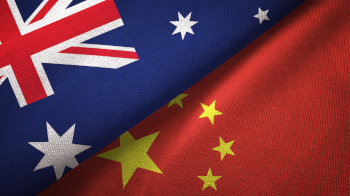Is China an “extraditable country”?
Before a request can be made from Australian authorities to extradite a person, the foreign country must be an ‘extraditable country’.
Such countries are listed in the regulations under the Extradition Act 1988 (Cth). China is presently not listed as an extradition country.
The person must also be an ‘extraditable person’, someone who has an arrest warrant or has been convicted in a foreign country.
Important considerations before the Attorney general will extradite
A magistrate will issue an arrest warrant for the person if an extradition request is granted by Australian authorities. Once arrested, the person is able to consent to being extradited in which case they surrender to the foreign country and are escorted from Australia to the foreign country.
In a situation where consent is not given, the Attorney-General will determine whether the person will be surrendered.
In making this determination, considerations are had to the following:
What is the present situation between Australia and China?
The “Treaty on Extradition Between Australia and The People’s Republic of China” was signed by Australia on 6 September 2007.
If the treaty is ratified, China would be listed as an ‘extradition country’ within the Extradition Act 1988.
Countries on this list can make a request that must be obligatorily considered by Australia. At the moment, Australia can consider extradition requests from China on the basis of conventions that both nations are a party such as the “United Nations Convention Against Corruption 2006” and the “United Nations Convention Against Transnational Organized Crime 2004”.
In 2016 the Joint Standing Committee on Treaties’ inquiry into the Treaty on Extradition Between Australia and The People’s Republic of China invited submissions from the public and interested stake holders on the proposed Extradition Treaty with China.
Attorney-General Department’s perspective on the proposed extradition treaty
In the report “National Interest Analysis [2016] ATNIA 6”, the Department outlined reasons for Australia to proceed with the the Extradition Treaty with China. They include:
- The treaty will facilitate closer co-operation on law enforcement matters, particularly on transnational crime in the region, illegal drug trafficking and other organised crimes.
- The treaty is consistent with domestic legislative arrangements under the Extradition Act 1988. It will ensure that criminals cannot evade justice simply by crossing borders.
- Extradition requests will only be granted where requirements in the treaty are met. Such requirements include human rights safeguards. Extradition will be refused if there are substantial grounds for believing a person will be subjected to torture or cruel, inhuman or humiliating treatment/punishment.
- Extradition will be refused if the offence carries the death penalty unless an undertaking is given that the death penalty will not be imposed or carried out.
- The treaty adopts the ‘no evidence’ standard for extradition requests which is consistent under the Extradition Act 1988. The report also stated that this accords with the international approach of simplifying extradition requests and that Australia has over 30 bilateral extradition treaties with the same evidentiary standard.
View of the Law Council of Australia concerning the extradition treaty
On 2 March 2016 the Law Council submitted in its report, “Treaty on Extradition Between Australia and the People’s Republic of China” and raised its concerns regarding the proposed Extradition Treaty with China.
The Law Council of Australia has opposed the ratification by Australia due to the absence of ‘sufficiently robust protections’
The main concerns listed by the Law Council in its report are outlined below:
- Limited protections for the right to a fair trial: The treaty omits a common safeguard in Australian treaties that allows Australia to refuse to extradite a person on the grounds that the person is unlikely to receive a fair trial. Further, the treaty does not allow a discretionary refusal on grounds of the extradition request being unjust or oppressive as held in Commonwealth Minister for Justice v Adamas at 305 in an interpretation of section 22(3) of our Extradition Act 1988.
- Limited evidentiary thresholds for determining an extradition request: The treaty does not require the provision of evidence to an Australian court in support of the extradition request. The US has a ‘probable cause’ approach and Canada has a ‘record of the case’’ approach both of which require some evidence. As it stands, the treaty would allow information and evidence presented by Chinese authorities to be taken at face value.
- Consequences for breaching an undertaking that the death penalty will not be imposed: The council noted undertakings are not legally enforceable as held in McCrea v Minister for Customs and Justice. The treaty also fails to provide for the consequence of a State’s non-compliance with such an undertaking. This means that there is no way of ensuring that extradited persons would not be sentenced to the death penalty and by extent, exposed to torture once extradited.
The main concerns therefore relate to the view that the criminal justice system in China lacks the procedural fairness reflected in the Australian justice system.
In response to these concerns, the Attorney-General’s Department has pointed out that the treaty does not result in an automatic process for extradition, that it is a ‘framework for decision-making’.
It is upon this framework that Australia can make a decision whether to extradite a person. It has also being re-iterated that death penalty undertakings with extradition cases have been honoured by other nations in the past and Australia would know if such undertakings had been breached.
The Attorney-General’s Department stated that such actions in an international arena for crime co-operation would result in consequences.
The proposed Extradition Treaty is being presently being considered by the Joint Standing Committee on Treaties.
Nyman Gibson Miralis provides expert advice and representation in complex transnational cases involving extradition and mutual legal assistance.
Contact us if you require assistance.


